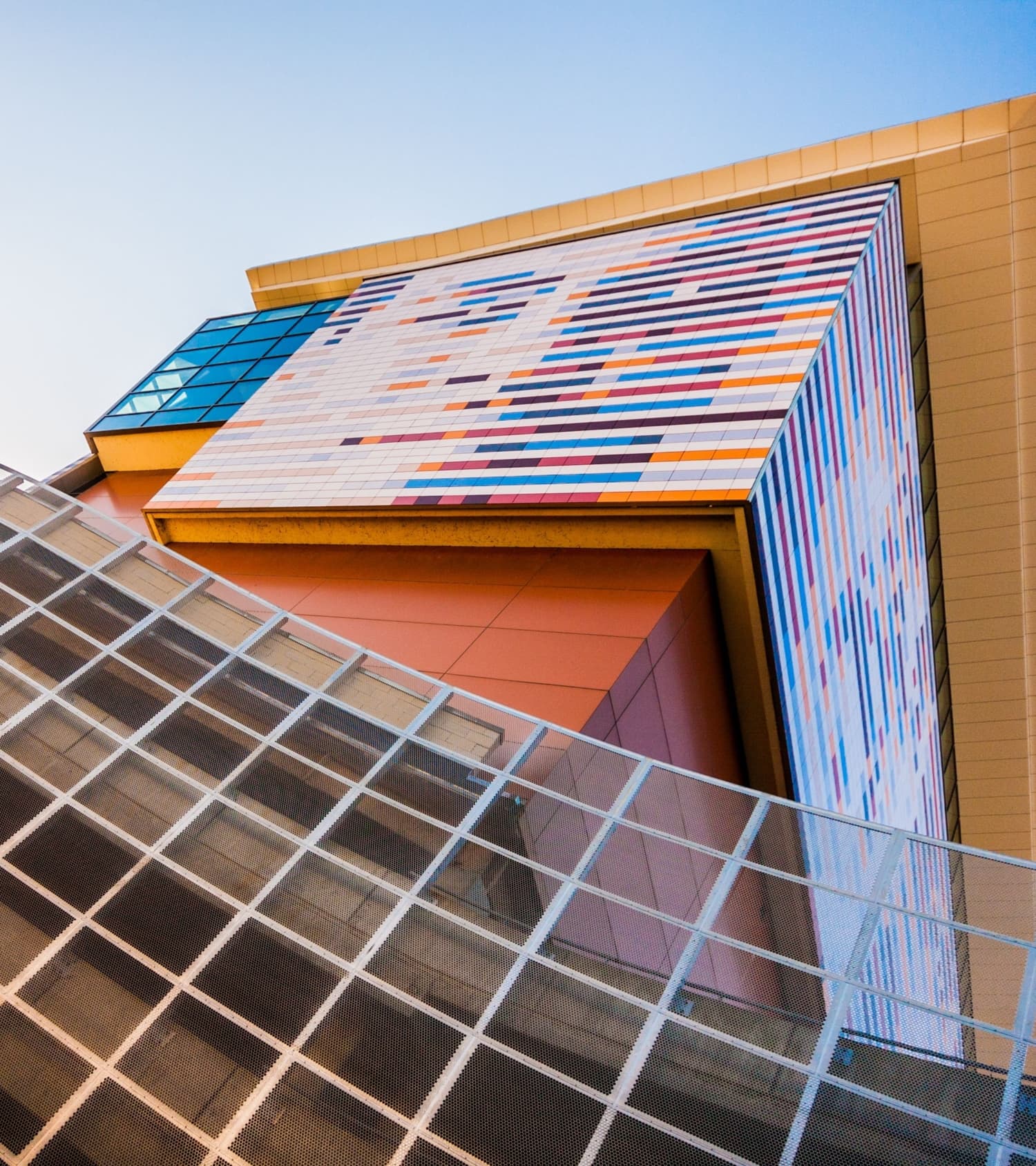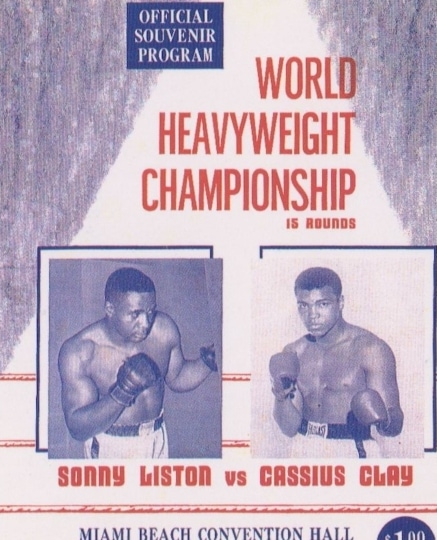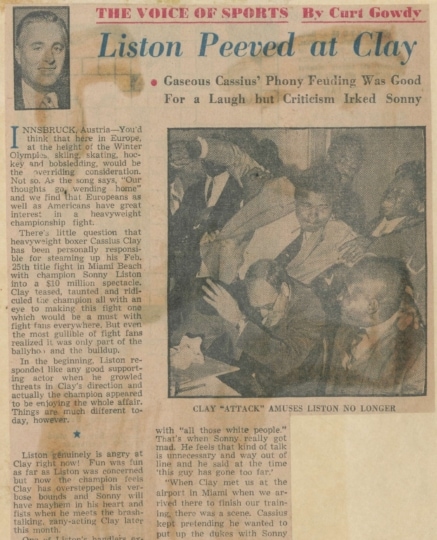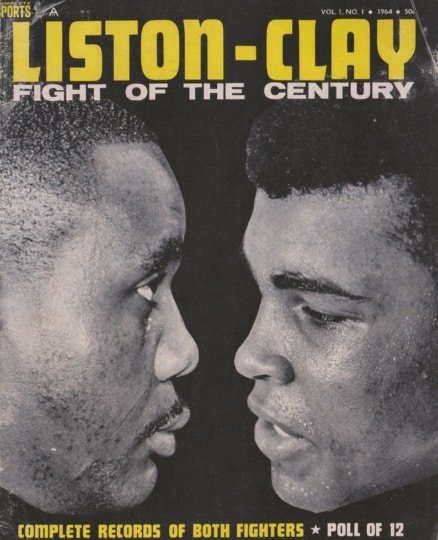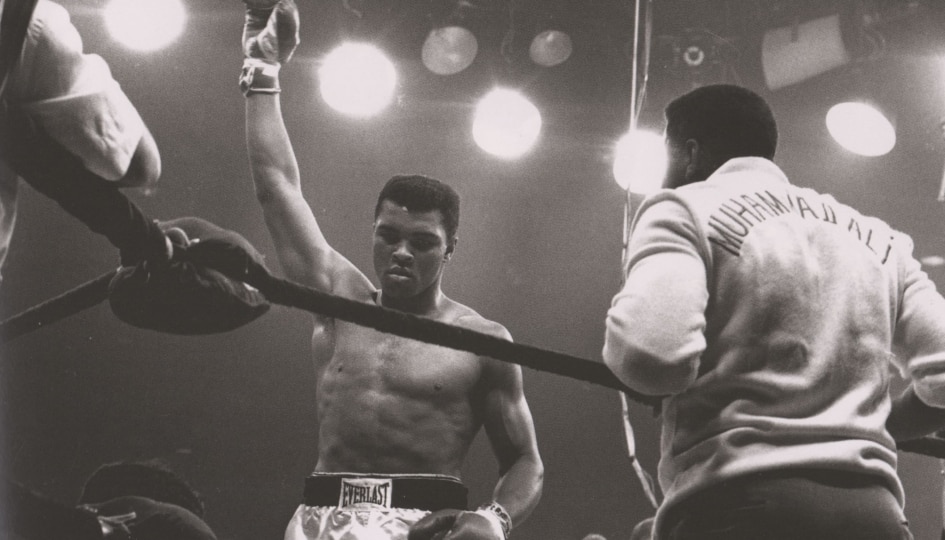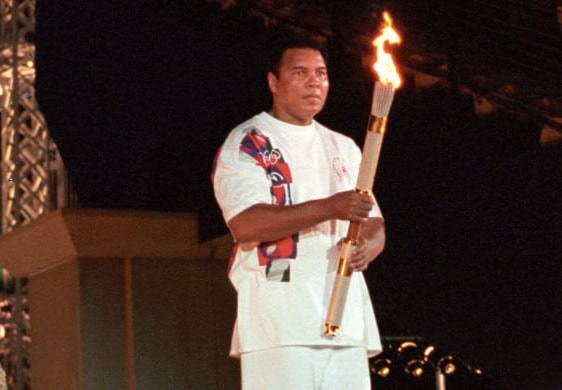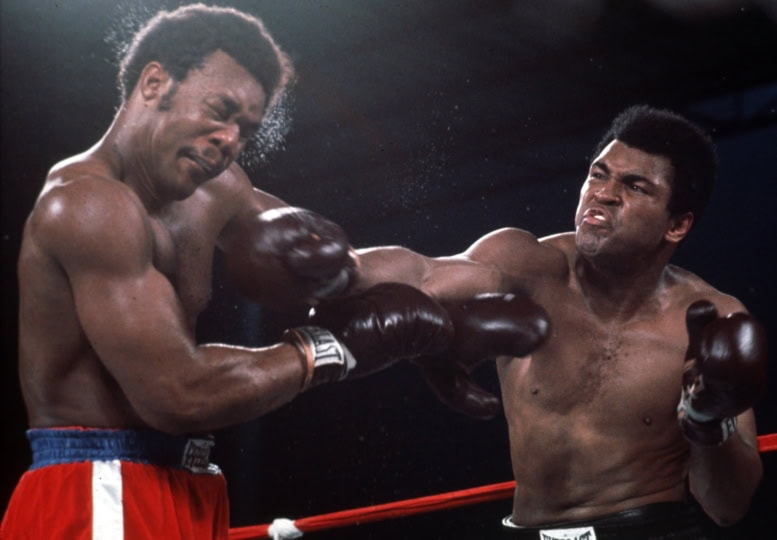"I Shook Up the World!"
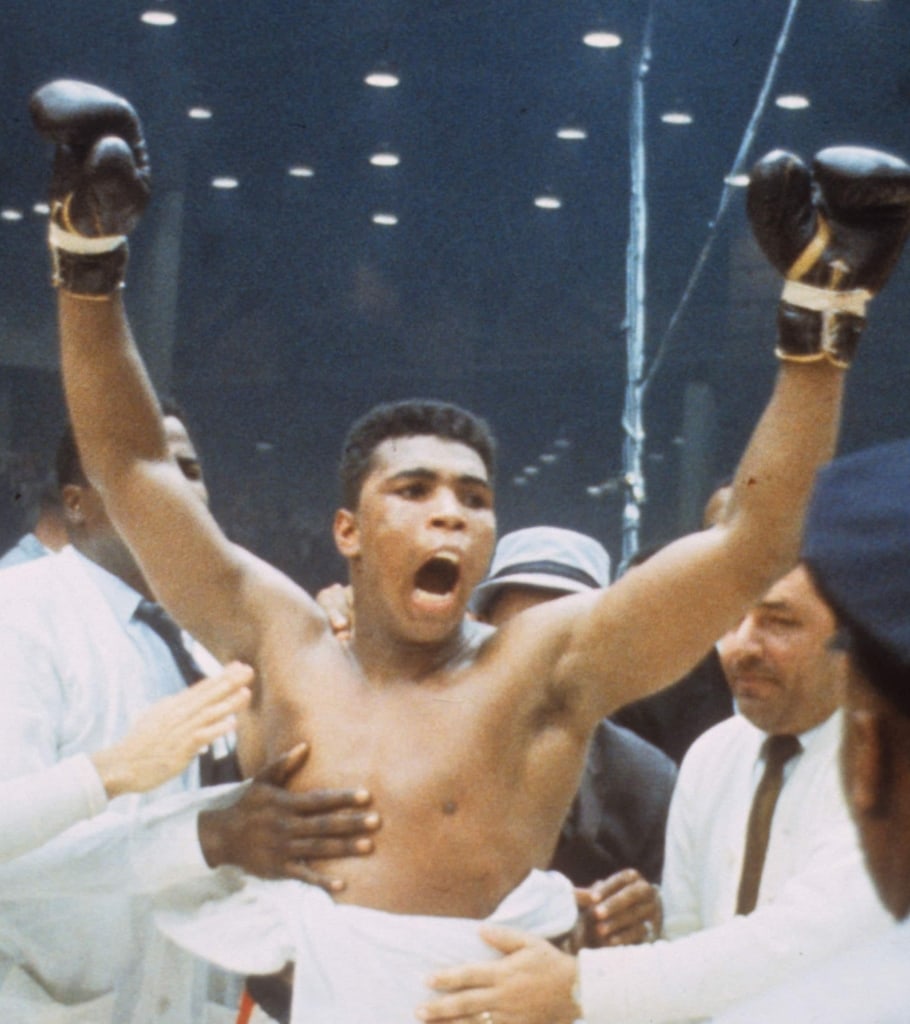
New Name, New Champion:
60 Years Later
Liston v. Clay - February 25, 1964
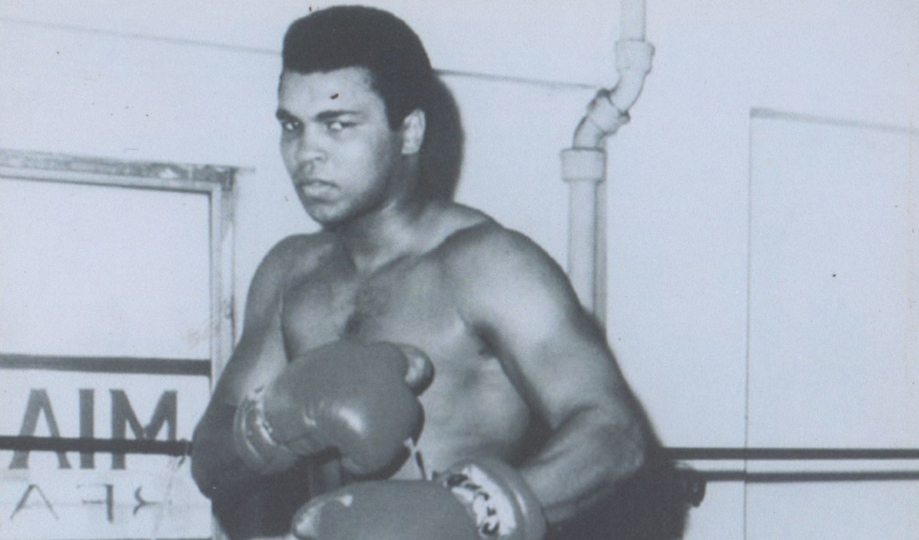
From Meeting to Matchup
Sonny Liston first encountered Muhammad Ali, then Cassius Clay, in February 1963 at Miami’s 5th Street Gym. However, it wasn’t until November 1963 that the two boxers signed a contract to meet in the ring.
Before their bout, Ali and Liston met at a press conference on February 14, 1964, where Ali forecasted the outcome of the match…
"I’m predicting eight to prove I’m great."
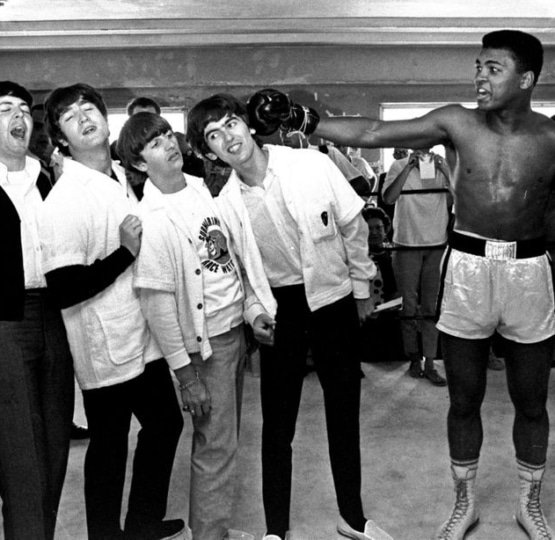
A Hard Day's Fight
Even The Beatles made a notable appearance at 5th Street Gym on February 18, adding to the excitement surrounding the event.
Who’s Going to Win?
Despite a 19-0 record, Ali was an 8-1 underdog few believed would defeat the reigning heavyweight champion.
Liston, a seasoned boxer who had recently defeated Floyd Patterson twice in a row with a knockout in the first round, was expected to do the same to Ali. Critics thought Ali’s boxing style would be his downfall against Liston’s seeming indestructibility, raw strength and killer left hook. However, Ali’s speed and agility would offset the brunt force of Liston’s jabs.
Check out our Digital Exhibit on this anniversary, for these and more treasures from the Ali v. Liston fight.
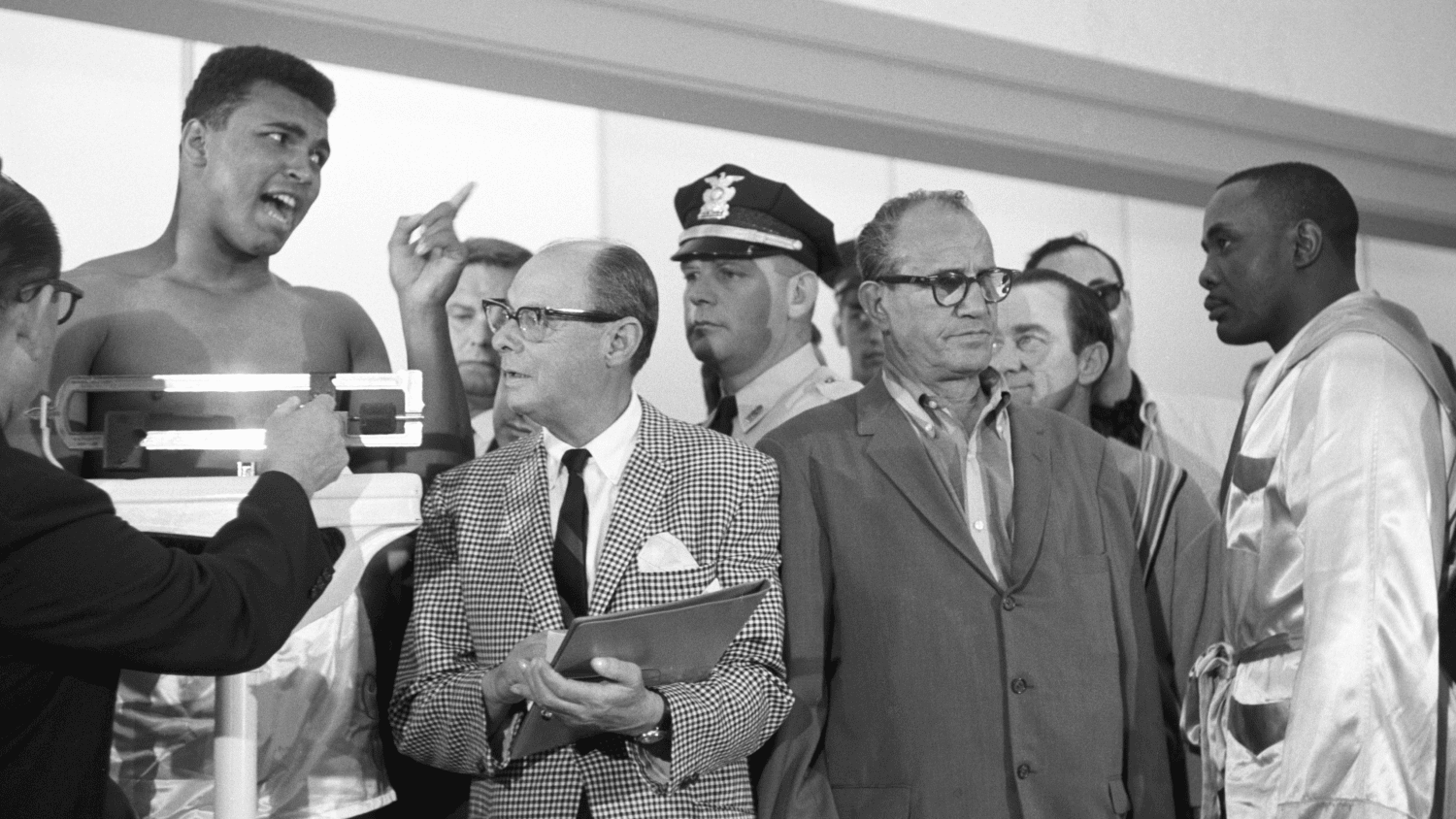
Fight Night
The boxers finally weighed-in for the historic match on February 25, 1964, at the Miami Beach Convention Hall in Miami, Florida. In Ali’s corner were his trainer Angelo Dundee, his cornerman Drew ‘Bundini’ Brown, and his fight doctor Ferdie Pacheco. In Liston’s corner were his trainer Willie Reddish, and his cut man Joe Polino. Spectators paid $250.00 to sit ringside in what was called, “The Golden Circle.”
The announcer introduced Ali as, “the challenger from Louisville, Kentucky, wearing white trunks with red stripes, weighing in at 210 and ½ lbs., the former Olympic light heavyweight champion, Cassius Clay,” and Liston as, “his opponent from Denver, Colorado, weighing 218 lbs., wearing white trunks with black stripes, the heavyweight champion of the world, Charles ‘Sonny’ Liston.”
Watch Fight Highlights
Ali and Liston's bout for the heavyweight title took place at Miami Beach, Florida.
Watch Fight Highlights
Ali and Liston's bout for the heavyweight title took place at Miami Beach, Florida.
The New Champion
During the match, Ali proved to be formidable, surprising both critics and his opponent. In the first round, Ali traded punches with Liston, matching him blow for blow, while the TV announcer noted Ali had already outlasted Patterson’s fights against Liston. Both boxers failed to hear the bell ending the round, continuing to fight after it rang.
As the match progressed into the third round, Ali demonstrated his skill by landing a jab on Liston’s face, resulting in a cut below his eye. By the fourth round, the TV announcer highlighted the duration of the bout, emphasizing Ali had lasted longer against Liston than any of his previous opponents in the past three and a half years. Towards the end of fourth round and into the fifth, Ali’s eyes appeared irritated as he blinked repeatedly, prompting Dundee to flush them of the irritant. Ali later complained that something on Liston’s gloves had gotten into his eyes, causing them to burn.
In the seventh round, Ali caused a major upset, according to Joe Louis, “the biggest upset in boxing history,” winning by technical knockout (TKO). Liston failed to leave his corner, citing an injured left shoulder. (Later, doctors said it was thrown out of socket.) As a result, Ali won both the WBA World Heavyweight title and the WBC World Heavyweight title, making him the undisputed Heavyweight Champion of the world.
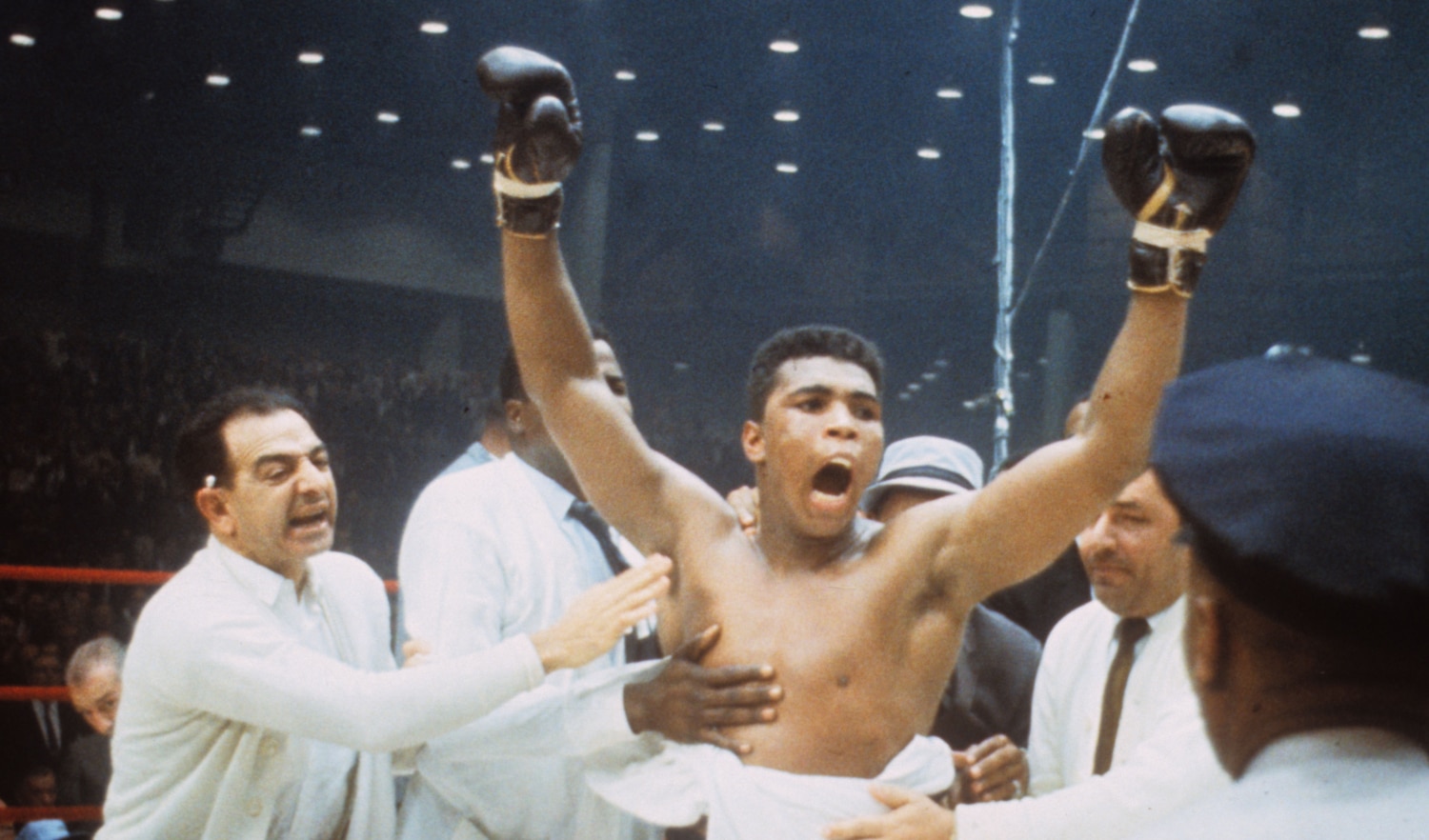
“I’m so great, I don’t have a mark on my face, and I just upset Sonny Liston, and I just turned 22 years old. I must be the greatest. I told the world! I talk to God every day. If God’s with me, can’t nobody be against me. I shook up the world! I know God. I know the real God. I had him gone in eight. I was getting ready to take him in the eighth as you can see but the man stopped it just from making me look so great. He wanted to go to heaven, so I took him in seven. I am the king of the world! I’m pretty! I’m a bad man! I shook up the world! I shook up the world! I shook up the world!”
Ali proved that he, though young, was a force to be reckoned with in the ring, a worthy opponent whose agility and strategic techniques should not be disregarded. The match’s tremors would resound with lasting impact on the future of boxing and catapult Ali’s career.
Not Done Shaking Up the World
In the days immediately following, he stunned the world once more with the announcement of his conversion to the Nation of Islam. Ali had purposefully not declared his conversion prior to the fight, believing he would be barred from fighting Liston. Ali’s first introduction to the religion has been reported differently through the years.
One source says it came in the form of a radio broadcast in 1959, during which The Honorable Elijah Muhammad spoke on the virtues of Islam. A letter written by Ali states that it was through a cartoon in an issue of Muhammad Speaks that he bought on the corner of 9th and Broadway in Louisville, Kentucky on his way home from a skating rink.
However, it is likely that he didn’t attend his first meeting until March 1961, when Ali met Sam Saxon in Miami, who was selling Muhammad Speaks newspapers and invited him to a meeting at the mosque. Ali spent the next three years learning about the faith, covertly attending meetings, and spending time with key members like Malcolm X, The Honorable Elijah Muhammad, Sam Saxon, and Herbert Muhammad.
After his conversion announcement, Ali went by Cassius X until days later when, on March 6, he revealed his new name, Muhammad Ali, given to him by The Honorable Elijah Muhammad. He sent journalists and news outlets reeling when he announced that he would no longer answer to Cassius Clay. Robert Lipsyte aptly described the post-Liston announcement: “…these people [journalists] were stuck with a heavyweight champion who said, ‘I don’t have to be what you want me to be. I’m free to be me.’” Ali’s refusal to conform to societal expectations, especially concerning race, religion, and identity, challenged the norms of the time.
Watch News Clip
Muhammad Ali explains to an NBC News reporter the reason for his name change.
Watch News Clip
Muhammad Ali explains to an NBC News reporter the reason for his name change.
The Beginning of a Legacy
Twenty-six years later, Ali said, “Changing my name was one of the most important things that happened to me in my life. It freed me from the identity given to my family by slave masters…That’s all I was doing. People change their names all the time, and no one complains. Actors and actresses change their name. The pope changes his name. Joe Louis and Sugar Ray Robinson changed their names. If I changed my name from Cassius Clay to something like Smith or Jones because I wanted a name that white people thought was more American, nobody would have complained. I was honored that Elijah Muhammad gave me a truly beautiful name. ‘Muhammad’ means one worthy of praise. ‘Ali’ was the name of a great general. I’ve been Muhammad Ali now for twenty-six years. That’s four years longer than I was Cassius Clay.” (Muhammad Ali: His Life and Times)
In the years that followed, Muhammad Ali’s impact extended beyond the boxing ring. He became a symbol of resilience, activism, and conviction. His journey from the historic bout with Liston to his conversion and name change, showcased a man unafraid to challenge the status quo, leaving an enduring legacy that continues to inspire generations. By shaking up the world, both in the ring and in life, Muhammad Ali became more than a champion; he became a beacon of hope, strength, courage, and individuality.
